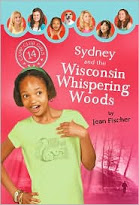As an aspiring writer, you probably have lots of questions about the business of writing. You might wonder if you need an agent, or how to write a great query letter, or what your odds are of getting published. The business of writing can leave you feeling tired and lacking in enthusiasm. That's why it's important to work on your soul.
The American poet Edgar Lee Masters said it best when he wrote:
“Only after many trials for strength,
Only when all stimulants fail,
Does the aspiring soul
By its own sheer power
Find the divine
By resting upon itself.”
How about it? Is your writer's soul powerful enough to rest upon itself? Last week, I challenged you with an exercise to write very specifically. This week, I challenge you to think very specifically about the following ten questions.
1. Why do you want to be a writer? I know. You've been asked this question a million times, but don't skip to #2. This time, think about what drives your writer's soul, then write down your best answer. 2. What are your writing strengths and weaknesses? Be honest with yourself. Your soul becomes stronger when you acknowledge imperfection.3. What are you doing to become an even better writer? Did you notice that I said "even better?" 4. Are you able to write just to please yourself? If you write only to please a specific audience, you might want to change that. It can take the soul right out of your writing. 5. How much time are you willing to spend writing every day? Your blood pressure just shot up, didn't it? It's okay if you don't have time to write every single day. What's important is that you make time to write. 6. If your work is rejected multiple times, will you continue to write?
5. How much time are you willing to spend writing every day? Your blood pressure just shot up, didn't it? It's okay if you don't have time to write every single day. What's important is that you make time to write. 6. If your work is rejected multiple times, will you continue to write?
Again, be very honest. Think of your soul as needing a coat of armor. With what will you build it?7. What are you doing to learn about the publishing industry? Writing is fun and creative, but publishing is big business. Learning about the business side of writing is the key that unlocks doors. 8. How do you network with other writers? Writing requires a solitary soul, but the business of writing needs company.9. When you read, do you think about the writer's style? Do you read outside of your favorite genres? (Okay, I added an extra question here.) Read, read, and read. Books are like vitamins that fire your soul. If you read between the lines, you'll learn the business of writing. 10. As a writer, you'll leave a legacy. What do you want your legacy to be?
This is a tough one. With a lot of hard work and some luck, someday you'll have a book on the bestseller list. But if that doesn't happen, will your legacy be one of failure or of success. That's entirely up to you.
Now, go back and answer the first question again:
Why do you want to be a writer?
 1. Write a Christmas story to read to your family on Christmas Eve.
1. Write a Christmas story to read to your family on Christmas Eve. 











































